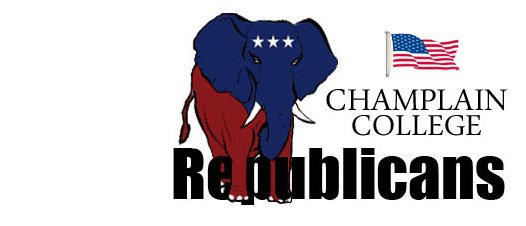Below is a copy of an article written by a Champlain College student that was to be published in the "Champlain Current." (The student-run publication on campus) Apparently, the plan was to run it side by side with a "liberal view" on the climate change issue. However, the "Champlain Current" chose not to publish the article - so we've gone ahead and published it here.
Enjoy!
REPENT! Global Warming is Near!
In April of 1975, Newsweek ran a controversial article on a new global crisis. Around the world, scientists were hooting and hollering that the next ice age was coming. Global cooling was upon us!
Now I don’t bring up this point to disparage scientists, or to infer that because they got it wrong 30 years ago, they’ve got it wrong today. I bring it up to set the stage for an important question about how conservatives approach the climate change issue as opposed to what we’re seeing on the left-wing side of the issue -- the “Religion of Global Warming. “
Imagine if the 1975 proponents of global cooling acted the same way global warming activists do today. Imagine if they had succeeded in intimidating the world into believing the “debate was over,” and shouted down anyone who dared to present evidence contrary to the premise. Imagine if, as a result, we had spent the last thirty years doing everything in our power as a nation to heat-up the earth? Scary thought, huh?
That’s what’s so terrifying about the liberal approach to climate change. Conservatives recognize and embrace the challenges of climate change in real scientific terms. Science seeks solutions with an opened mind, not a closed one. The scientific process requires questions, and is not afraid of outside the box thinking. Rather, science thrives on it. This is how we find answers.
Religion, however, is based on faith, which cannot be questioned. That’s why it is unnerving to hear Senator Peter Shumlin refer to his own global warming beliefs to that of a born again Christian, and comparing legislative sessions to “services.” Shumlin was even quoted in the Burlington Free Press when speaking of another Vermont politician, “he seems to have adopted our religion. I hope he comes to services.” Religion can be enlightening, but too often degenerates into conformity, intolerance and non-productivity.
Mary Tucker of the Department of Divinity at Yale University and a deep ecology activist promotes this religion as well. She founded the “Forum on Religion and Ecology,” a group designed to argue that the “environmental crisis” is religious in nature. In a speech on April 20, 2006 Professor Tucker said “The other area that religion and ecology addresses is that the environmental crisis is a spiritual crisis, and by that I mean that what I think is at hand is a clear call for hope... Because I think more than anything, we need this sense of a new and enlarged ethics. But we also need this sense that another world is possible, another world is possible for our children, their children and future generations of all species.”
Look, we all have our different opinions on climate change and there are many different theories in the scientific community as well. To take the religious environmental approach and slam the door on opposing views is counter-productive and hypocritical at best. Just as is forcing your opinion on a class you teach, as Mary Tucker and a handful of professors at Champlain College are prone to do. This is an issue that needs extensive discussions, with viewpoints all over the board heard equally. I applaud the Champlain Current for allowing this conversation to grow on their pages.
I [the writer] was asked to present the conservative viewpoint on climate change. Simply put, there is not one point of view, but many. The real question should be “what’s the difference in how conservatives and liberals approach the climate change issue?” Conservatives and scientists will agree that we cannot address this issue by creating the same movie over and over again. We cannot address this issue by censoring scientists who have different theories on climate change. We cannot address this issue as a society if we force students to read narrow-mindedly written books. Religion, faith and hope mixed in with a few threats and protests just won’t cut it.








